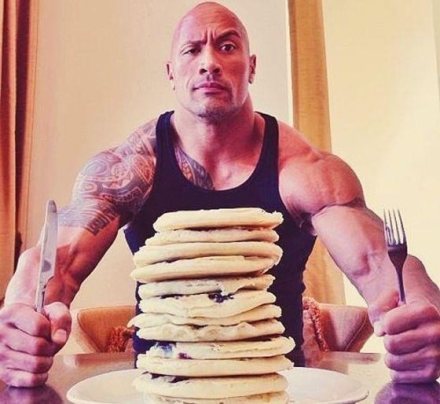When people think about fitness and reaching their goals, they go directly to the time spent in the gym. And it’s true, working out definitely burns calories, and resistance training can facilitate both fat loss and muscle growth. But exercising is only half the battle. The other half: diet.

Diet plays a key role in health and fitness. It is the fuel for your workouts, the solution to weight increases and decreases, and the defining factor in your overall body composition.
When you hear about diet and body weight, you always hear the dreaded “C” word – calories. But calories are not a bad thing! In fact, “calories” just means a unit of energy. When you intake more calories than you burn, you put on weight. When you intake less calories than you burn, you lose weight. Simple as that.
The tricky part is figuring out your total daily energy expenditure (TDEE), which is a fancy way of saying the base amount of calories you need to function in your daily life. If you then consume more calories than your TDEE, you will increase your weight, and vice versa. A quick google search will help you find an easy TDEE calculator.
But where do calories actually come from?
Calories come from macronutrients, which are carbs, fats, and protein. That’s it. The amount of calories in foods and drinks is based solely on its composition of carbs, fats, and proteins. Micronutrients and vitamins are important for your health, but have nothing to do with calories and caloric intake.
What’s even more confusing is that not all macronutrients have equal calorie levels. A quick rule of thumb is this:
1g of carbs = 4 calories
1g of protein = 4 calories
1g of fats = 9 calories
So foods with higher fat content will have more calories, gram for gram. Once you figure out your TDEE and start planning your meals, you need to be fully conscious of what the foods that you’re eating are, and the breakdown of macronutrients in it. It’s not just about eating a 50g bowl of cereal with 250ml of milk, but deciphering what that 50g consists of in terms of carbs/ fats/ protein, and what fat percentage the milk is. 250ml of skim milk will have a different calorie amount than 250ml of 2% milk.
Your macronutrient intake and lifestyle also affect your hormone levels, which in turn can affect how hungry you are. There are many hormones that affect how your body works and functions, but 2 of those hormones are called leptin and ghrelin, which affect your hunger levels. Leptin inhibits hunger, and ghrelin increases hunger. Different types of food help to regulate leptin and ghrelin levels, so it is important to keep this in mind when formulating where you get your macronutrients from.
Just as there is so much variability in how one exercises and “works out”, there is so much variability in “diet”. Eating for your goals is very important, and finding a breakdown of macronutrients that fits with your body is a huge part of actually reaching your fitness goals. There is so much to learn about how diet affects weight loss and gain, but having an understanding of macronutrients and calorie levels gives a great starting point to lead you on your way.



